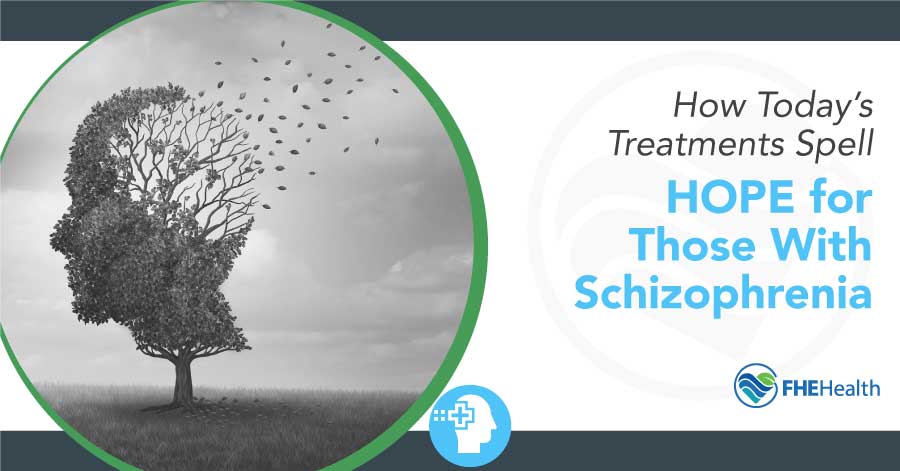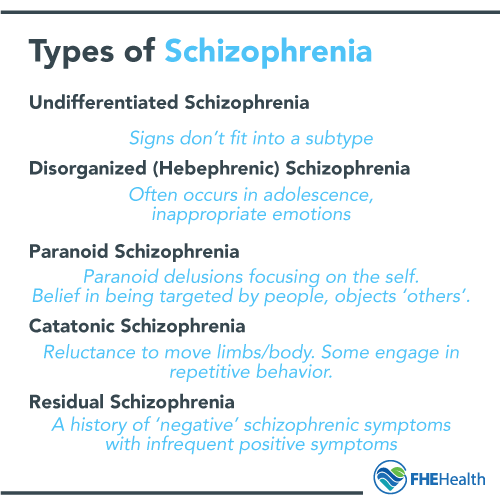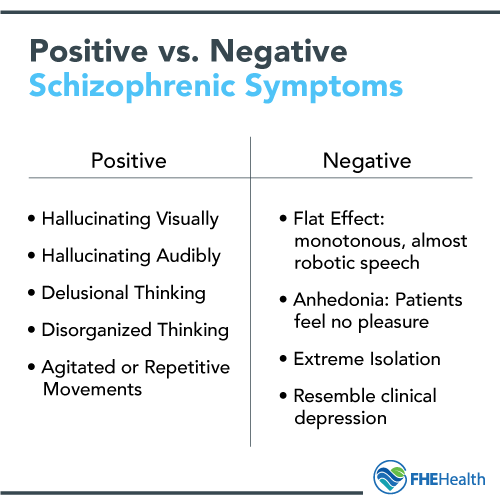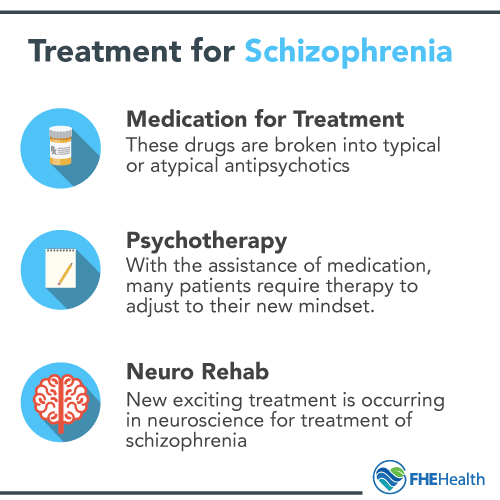
What Is Schizophrenia?
Schizophrenia is a serious mental illness characterized by an inability to distinguish reality from fantasy. People with schizophrenia must take antipsychotic medications to reduce symptom severity. Although an exact cause of schizophrenia has yet to be determined, psychiatrists and neuroscientists believe that excess dopamine in the brain from the misfiring of neurons responsible for regulating dopamine produces psychotic features of schizophrenia.
Schizophrenia is more prevalent in men than in women. Typically, the onset of schizophrenia occurs in late adolescence to early adulthood or later in life (late 30s to 40s). Some researchers think that, due to the timing of schizophrenia, the disease may also correlate to disturbances in hormonal regulation involving estrogen and testosterone.
Schizophrenia is not curable. It is a chronic mental disorder requiring lifetime medication, psychological counseling and support from social services, family members and friends. Fortunately, new research is aiding in understanding the causes of schizophrenia, and schizophrenia treatment has advanced significantly, so people with schizophrenia can lead more normal lives.
Schizophrenia Subtypes
Undifferentiated Schizophrenia
A diagnosis of undifferentiated schizophrenia means a psychiatrist recognizes signs of schizophrenia in a patient, but these signs don’t fit into a particular schizophrenia subtype. Undifferentiated schizophrenia is often difficult to diagnose and may require extensive testing to rule out an organic disorder (brain tumor or abscess) or severe depression with psychotic features.
Disorganized (Hebephrenic) Schizophrenia

Paranoid Schizophrenia
Unlike general delusions involving beliefs comparable to some popular conspiracy theories, paranoid delusions are focused on the self. Individuals with paranoid schizophrenia believe they are being targeted, influenced or spied on by neighbors, the government, extraterrestrials, family members or even inanimate objects. Living with paranoid schizophrenia is possible, but patients need to take medication as prescribed and see counselors regularly. In some cases, paranoid delusions may compel people to engage in actions harmful to themselves and others.
Catatonic Schizophrenia
A classic sign of catatonic schizophrenia is a person’s reluctance to change the positioning of their arms, legs, head and other parts of the body. Someone with catatonic schizophrenia may extend an arm out in front of them, place the other arm over their head and remain in that position for hours. They will resist changing, or they may allow themselves to be manually moved only to return to their previous position immediately. Some catatonic schizophrenic patients occasionally engage in repetitive behavior, such as clapping, rotating their arms or moving their fingers the same way over and over again.
Residual Schizophrenia
To be diagnosed with residual schizophrenia, patients need to have a history of negative schizophrenic symptoms with infrequent events presenting positive schizophrenia symptoms. Individuals with residual schizophrenia may go years without hallucinating or having delusions.
Positive Symptoms of Schizophrenia

Negative Symptoms of Schizophrenia
Negative symptoms involve the emotional presentation of schizophrenia. They include:
- Exhibiting a flat effect: Facial expressions are nonexistent while speech sounds monotonous and almost robotic.
- Anhedonia: Patients feel no pleasure in previously enjoyable activities and generally don’t want to participate in any social or solo activities.
- Extreme isolation: People with schizophrenia are so overwhelmed by their hallucinations and delusions they speak little or not at all if someone attempts to engage them in conversation.
Since negative schizophrenic symptoms resemble severe clinical depression, some patients may be misdiagnosed initially with major depression until they begin exhibiting positive symptoms of schizophrenia.







